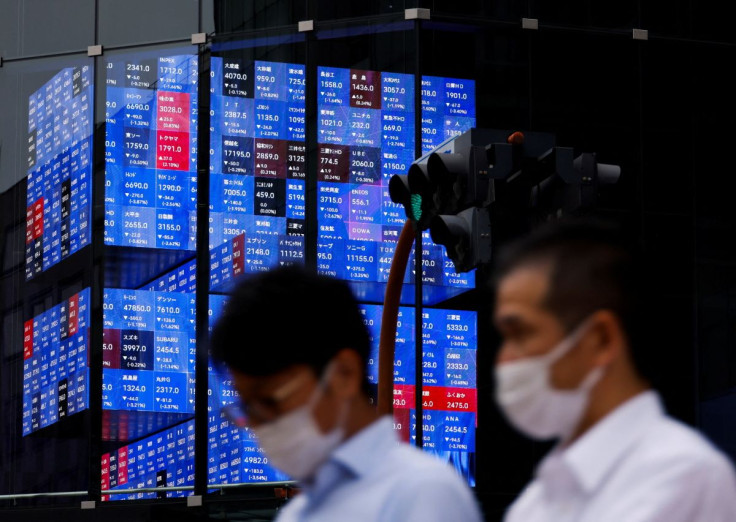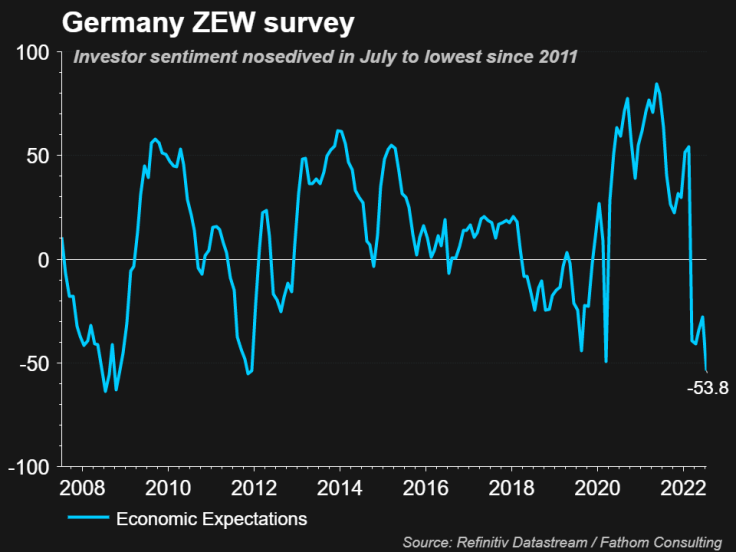Global Equities Waver, Oil Falls Amid Recession Fears

World stocks traded mixed while oil prices and bond yields dipped on Tuesday as traders fretted over prospects of further central bank tightening and worries about the health of economies worldwide.
The dollar's role as the safe-haven currency for investors concerned about the economic outlook has been burnished in recent weeks, with the U.S. currency roaring to two-decade highs against multiple currencies, while the euro sank to within a whisker of parity with the dollar.
The pan-European STOXX 600 index rose 0.49% and MSCI's gauge of stocks across the globe shed 0.22%.
The euro has been particularly vulnerable given the impact of an ongoing spike in natural gas prices on the regional economy and the war in neighboring Ukraine, and with the European Central Bank behind rivals in raising interest rates.
(Graphic: Euro pulled towards parity:

)
The dollar index fell 0.148%, with the euro up 0.12% to $1.0051, and the yen was not far off its weakest level in more than two decades.
Analysts are tempering their profit estimates as the earnings season starts in earnest this week, with reports from JPMorgan Chase & Co, Citigroup Inc and Wells Fargo & Co among others.
German investor sentiment tumbled in July, according to a widely watched index published on Tuesday.
(Graphic: ZEW:

)
Economic data, including U.S. consumer inflation on Wednesday, and comments from Federal Reserve officials will be in focus later this week as investors look for clues on the outcome of the Fed's upcoming policy meeting before the pre-meet blackout period.
A high inflation reading would add pressure on the Fed to step up its already aggressive pace of interest rate increases.
"It is a continued risk-off tone in markets and the anticipation that while maybe some of the pain is priced in, you still have inflation expected to accelerate tomorrow and the Federal Reserve with a lot of room to go on rate hikes," said Ross Mayfield, investment strategy analyst at Baird.
On Wall Street, the Dow Jones Industrial Average rose 0.16% while the S&P 500 lost 0.15% and the Nasdaq Composite dropped 0.13%.
MSCI's broadest index of Asia-Pacific shares outside Japan closed 1.04% lower, while Japan's Nikkei lost 1.77%.
Investors are also tracking how a growing number of Chinese cities, including the commercial hub Shanghai, are adopting fresh COVID-19 curbs to rein in new infections after finding a highly transmissible Omicron subvariant.
The surging cost of energy in Europe is also a major fear as the biggest single pipeline carrying Russian natural gas to Germany entered a 10-day annual maintenance period. Investors are concerned the shutdown might be extended because of the war in Ukraine, restricting European gas supply further and tipping the struggling euro zone economy into recession.
The yield on 10-year Treasury notes was down 3.1 basis points to 2.960%, having dropped back below 3% overnight as investors bought safe-haven Treasuries amid a sell-off on Wall Street.
The two-year U.S. Treasury yield, which typically moves in step with interest rate expectations, was down 3.1 basis points at 3.039%.
Growth fears were weighing on oil, despite concerns about tight supply.
Oil prices fell sharply on Tuesday, pressured by the strong dollar, demand-sapping COVID-19 curbs in top crude importer China, and fears of a global economic slowdown. [O/R]
Gold was steady, with spot prices down 0.4% to $1,726.89 an ounce.
Cryptocurrency prices dropped, with bitcoin last down 0.9% to $19,769.95.
© Copyright Thomson Reuters 2024. All rights reserved.




















